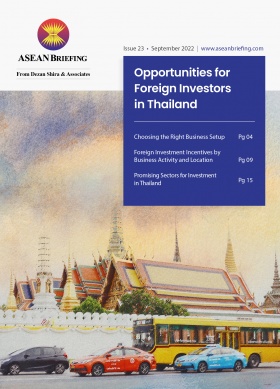Religious Holiday Allowances in Indonesia: Obligations for Businesses
With the upcoming Eid-al Fitr holiday in Indonesia expected to fall on around 10-11 April 2024, businesses are obligated to pay the religious holiday allowance, also known as Tunjangan Hari Raya (THR).
Indonesia’s Ministry of Manpower has issued Circular Number M/2/HK.04/III/2024 which states that this year’s religious allowance must be paid in full and not in installments.
What is THR?
The Tunjangan Hari Raya is a yearly bonus given to employees at least one week before the start of the religious holiday observed by the employee (based on the employee’s religion). The recognized religious holidays for THR payments are:
- Eid-il-Fitr for Muslims;
- Christmas for Catholics and Protestants (considered two different religions in Indonesia);
- Nyepi for Hindus;
- Vesak for Buddhists; and
- Chinese New Year for Confucianists.
Who is eligible to receive THR and how is it calculated?
All local employees, whether permanent or contract-based are eligible for THR and it must be paid using Indonesian rupiah.
Businesses are not obligated to pay their foreign workers the THR bonus.
The bonus is the equivalent of one month’s salary for employees who have worked at least 12 months or more, while those who have worked less than 12 months will have their bonus calculated on a pro-rate basis.
The pro-rate basis is calculated using the following formula:
(service period/12) x 1 month’s salary
Freelance workers are also entitled to THR. Those working for more than 12 continuous months must receive the equivalent of one month’s salary, which is calculated on the average salary they received throughout this period.
For those working for more than one month and less than 12 months, the THR is calculated based on the average monthly salary throughout the employment period.
What are the sanctions for businesses that do not pay THR?
Employees can report their employer to the Ministry of Manpower if the company delays or does not pay the THR bonus. Only businesses with explicit permission from the Ministry of Manpower can delay paying this allowance.
Employers are eligible for a fine, and other administrative sanctions which include:
- A fine of five percent of the total THR owed to the employee;
- Written warning;
- Restrictions on business activities including delays in receiving business permits or restrictions in the production capacity of goods and services;
- Temporary suspension of all production; and
- Suspension of business activities within a certain period;
These sanctions are given in stages and do not waiver the employer’s obligations to pay the THR.
Further, employees who are still owed their THR from previous years must also be paid in full.
If after the sanctions are implemented and the employer still does not pay the THR, then the employee has the right to take their employer to the Industrial Relations Court.
About Us
ASEAN Briefing is produced by Dezan Shira & Associates. The firm assists foreign investors throughout Asia and maintains offices throughout ASEAN, including in Singapore, Hanoi, Ho Chi Minh City, and Da Nang in Vietnam, in addition to Jakarta, in Indonesia. We also have partner firms in Malaysia, the Philippines, and Thailand as well as our practices in China and India. Please contact us at asean@dezshira.com or visit our website at www.dezshira.com.
- Previous Article Indonesia Issues New Tax Incentives to Spur EV Production and Sales
- Next Article Appointing a Data Protection Officer in Indonesia








